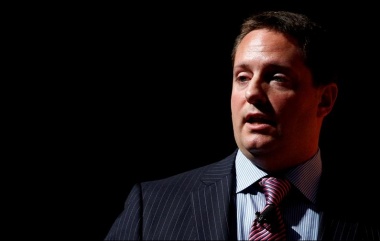LONDON (Reuters) – Tens of trillions of global investment dollars are pouring into companies touting robust environmental, social and governance credentials. Now short-sellers spy an opportunity.
Such hedge funds, often cast as villains of the piece because they bet against share prices, scent a profit from company valuations they believe are unduly inflated by ESG promises or which they say ignore risks that threaten to undermine the company’s prospects.
The fact short-sellers, who look to exploit information gaps, are targeting the ESG sphere underlines the complexities facing investors in accurately gauging companies’ sustainability credentials. Teenage climate activist Greta Thunberg last week spoke of CEOs masking inaction with “creative PR”.
Against a backdrop of growing public and political concerns about climate change and economic inequality, companies are under increasing pressure to show they are taking greater responsibility for how they generate their profits.
Investments defined as “sustainable” account for more than a quarter of all assets under management globally, according to the Global Sustainable Investment Alliance. About $31 trillion has been invested, buoyed by analyst reports that show companies with strong ESG narratives outperform their peers.
Some short-sellers, including Carson Block of Muddy Waters, Josh Strauss of Appleseed Capital and Chad Slater of Morphic Asset Management, argue share prices can be bolstered by corporate misrepresentation about sustainability, or so-called “greenwashing”.
“Greenwashing is absolutely rampant now,” says Slater, whose fund bets on both rising and falling share prices. If companies fail to engage with long-term investors, he sees a red flag.
“From the short side, it’s quite interesting.”
Analytics companies that provide corporate ESG ratings use a combination of company disclosures, news sources and qualitative analysis of third-party data. They are a major source of information for investors, but it is not an exact science.
Hedge funds have various strategies for selecting targets, often focusing on those they think show both ESG and more traditional financial or operational weakness. A high ESG rating can attract short interest.
A Reuters analysis of data from financial information company Refinitiv and national regulators in Britain, France, Germany, Spain and Italy shows the five companies in each country with the best ESG scores collectively were being shorted more than those with the worst scores.
The short positions against the companies deemed to have the best ESG credentials were 50% greater in size than those placed against the worst-performers.






